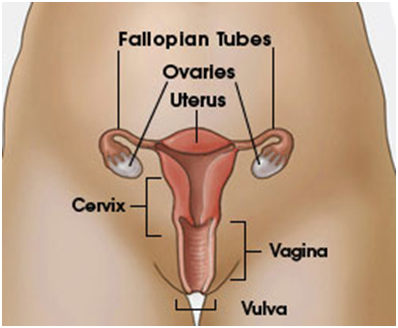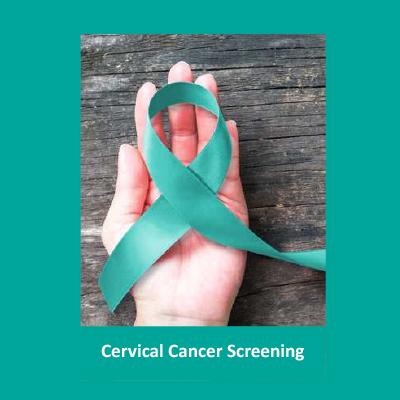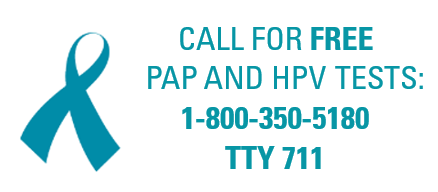KATE'S STORY
JULIA'S STORY
Who should get screened for cervical cancer?
The U.S. Preventive Services Task Force recommends:
-
Women aged 21-65 are screened with a Pap test every three years.
-
Women aged 30-65 are screened with a Pap test every 3 years, OR every 5 years with human papillomavirus (HPV) testing, OR a Pap test combined with HPV testing every 5 years.
If detected early, cervical cancer is one of the easiest cancers to prevent or treat with a simple procedure. As many as 93% of cervical cancers could be prevented by screening and HPV vaccination.
It is important to get tested because more than 50% of cervical cancers occur in women who have never received a Pap test or have not been tested in the past five years. A simple screening test can help prevent cervical cancer or find it early.
Screening for cervical cancer is necessary even if you think you are too old to have a child or are not having sex anymore.
What tests are used to screen for cervical cancer?
There are two types of tests for cervical cancer. Talk with your doctor about which one is right for you, and how often you should be screened.
- A Pap test (or Pap smear) looks for pre-cancers. These are cell changes on the cervix that might become cervical cancer if they are not removed. The Pap test is done in a doctor's office or clinic. The doctor will first use a plastic or metal instrument, called a speculum, to widen your vagina. (This helps the doctor examine both the vagina and the cervix.) The doctor then collects a few cells for testing, places them in a bottle of liquid, and sends them to a lab for testing. The lab will check to be sure that the cells are normal.
When you have a Pap test, the doctor may also perform a pelvic exam to check your uterus, ovaries, and other organs to make sure there are no problems.
If you are older than 65 years and have had normal Pap test results for a few years, your doctor may say that you do not need to continue to have Pap tests. Another reason your doctor may tell you that you do not need to have a Pap test is if you have had your cervix removed as part of a total hysterectomy for non-cancerous conditions.
- An HPV test looks for the high-risk virus that can cause precancers. The cells collected during the Pap test are also tested for HPV. When the Pap and HPV tests are done together it is called a cotest.
Do I need to prepare for a Pap or HPV test?
You should not schedule your Pap test for a time when you are having your period. Beginning two days before a scheduled Pap test, do not:
- Douche (rinse the vagina with water or another fluid);
- Have sex;
- Use a tampon;
- Use a birth control foam, cream, or jelly; or
- Use a medicine or cream in your vagina.
Click here for more information on cervical cancer screening recommendations.
What is cervical cancer?
When cancer starts in the cervix, it is called cervical cancer. The cervix is the lower, narrow end of the uterus. Also known as the womb, the uterus is where a baby grows when a woman is pregnant. The cervix connects the upper part of the uterus to the vagina (the birth canal).
All women are at risk for cervical cancer, but it occurs most often in women over age 30. The main cause of cervical cancer is HPV, a common virus that is passed from one person to another during sex. At least half of sexually active people will have HPV at some point in their lives, but few women will get cervical cancer.
Click here for more information on cervical cancer.

Cervical cancer is the easiest female cancer to prevent, with regular screening tests and follow-up.
Cervical Cancer Information Cards:
For eligibility information, visit the Maine CDC Breast & Cervical Health Program here.
Lowering Your RiskS
- Get regular cervical cancer screenings starting at age 21. This is the most important thing you can do to help prevent cervical cancer.
- Prevent HPV infection. There are two key measures to achieve this:
- Get vaccinated against HPV.
- The HPV vaccine is recommended for girls and boys at age 11 or 12.
- The vaccine can be given to males and females as old as 26.
- New guidelines allow the vaccine to be given to adults up to age 45, but this requires a discussion with your doctor.
- Protect yourself against HPV transmission by using a condom during sex.
Hear why one mom had her kids vaccinated:
Note:
- The HPV vaccine will not protect you against any strains of the HPV virus that may be in your body before getting the shot.
- Women who are vaccinated against HPV still need to have regular Pap/HPV tests to screen for cervical cancer.
- Get vaccinated against HPV.
- Other lifelong ways to help prevent cervical cancer may include:
- The most important thing you can do to reduce your risk of getting cancer is to not smoke.
- If you don't smoke or use tobacco—don't start. If you do smoke or use tobacco—quit.
- No matter how long you have smoked, quitting can reduce your risk for cancer and other chronic diseases.
- Quitting smoking can be hard for many people. There is a lot of help out there so don't give up—keep trying.
- For more information about quitting smoking or the use of tobacco/nicotine products, call 1-800-QUIT-NOW, or visit MaineQuitLink.com.

- Other lifestyle changes that may reduce your risk include:
- Eating a healthy diet.
- Being physically active.
- Maintaining a healthy weight.
- Avoid alcohol.
- The most important thing you can do to reduce your risk of getting cancer is to not smoke.



